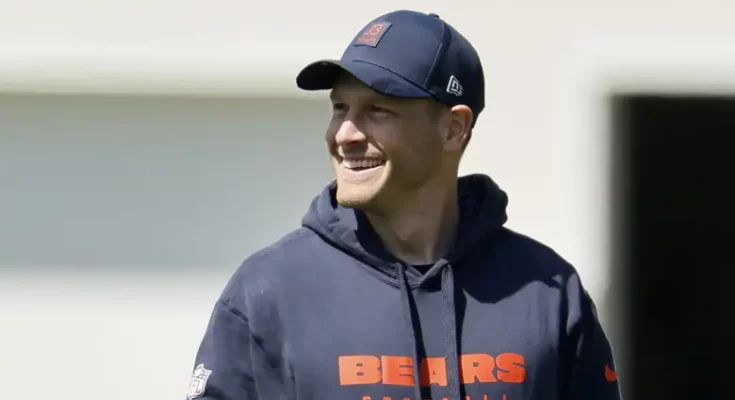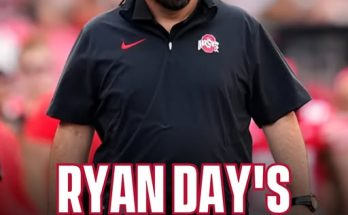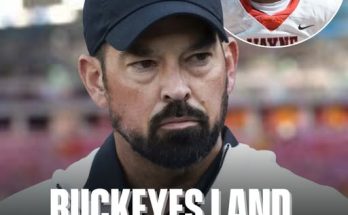The Chicago Bears are no strangers to headlines, but the latest storyline has caught the attention of fans and analysts alike due to a controversial moment during training camp. New head coach Ben Johnson, known for his innovative offensive mind and fiery personality, made waves when he abruptly kicked the starting offense off the field during a recent practice session. While such bold gestures are often intended to send a message, one veteran on the team was quick to voice his response, sparking debate about leadership, team accountability, and the future culture of the Bears under Johnson’s regime. The tension surrounding this incident may be a microcosm of the growing pains that come with a new coach taking the reins of a franchise eager for success.
For the Bears, this offseason has been defined by transition and lofty expectations. After years of inconsistent offensive play, Chicago is banking on Ben Johnson’s reputation as an offensive guru to unlock the potential of young quarterback Caleb Williams, who is entering his second year with the team. Johnson, previously the offensive coordinator for the Detroit Lions, was credited with crafting one of the most dynamic offensive units in the league. His hiring came with the understanding that he would bring accountability and discipline to a roster that has struggled with cohesion and execution. Still, his decision to remove the entire starting offense from the field mid-practice shocked many, including some players who interpreted the act as both motivational and somewhat confrontational.
The incident reportedly unfolded after a series of sloppy plays during a high-tempo drill. Missed assignments, dropped passes, and miscommunications between the offensive line and Williams frustrated Johnson, who is known for his detail-oriented approach. In a move that sent shockwaves across the training facility, Johnson told the starters to “hit the sidelines” and replaced them with the second-string unit for the remainder of the drill. For a head coach still establishing his leadership style, this was an unmistakable signal: mistakes will not be tolerated, regardless of a player’s status or reputation on the team. Coaches often look for moments like this to test the resilience and professionalism of their players, and Johnson’s decision will likely serve as an early chapter in the story of his tenure in Chicago.
One veteran player, however, wasn’t shy about responding to the situation. Speaking to reporters after practice, the unnamed veteran emphasized the importance of trust and communication between players and their new coach. While he acknowledged the need for accountability, he also pointed out that abrupt disciplinary measures can sometimes have unintended consequences. “We’re all professionals,” he said, “and while I understand the coach wants to set a tone, there’s a balance between pushing us to be better and making us feel like we’re being punished for mistakes that come with learning a new system. We’re building chemistry, and that takes time. What matters most is that we move forward together.” This response captured the delicate dynamic between a head coach asserting his authority and players trying to adapt to new expectations.
It’s worth noting that such conflicts are not uncommon in the NFL, particularly during a regime change. Players who have grown accustomed to a certain coaching style may initially push back against a new, more demanding approach. In Johnson’s case, his high-energy philosophy stems from his belief that championship teams are forged not just by talent but by relentless attention to detail. His time in Detroit, working under head coach Dan Campbell, instilled in him a culture of intensity and no-excuses leadership. For the Bears, a team that has struggled to consistently contend in recent years, this shift in mentality could be exactly what is needed to turn the corner.
From a leadership perspective, the incident raises questions about the fine line between discipline and alienation. While some players may find Johnson’s tactics motivating, others might perceive them as heavy-handed, particularly when executed in such a public and abrupt manner. The response from the veteran player suggests that there’s an ongoing conversation within the locker room about how best to respond to the challenges of a new coaching staff. This could be seen as a positive sign that players feel comfortable voicing their opinions, which is critical for fostering a culture of mutual respect and open communication. On the other hand, if such moments become a source of friction, it could test the unity of a team still finding its identity.
For Caleb Williams, the young quarterback at the center of this offensive rebuild, Johnson’s decision was likely both a learning moment and a challenge to his leadership. Quarterbacks are often held to a higher standard, and Johnson has been vocal about his belief that Williams has the potential to develop into a franchise cornerstone. A practice like this, though harsh, can serve as a test of Williams’ resilience and ability to rally his teammates in the face of adversity. If he responds by elevating his performance and demanding more from those around him, it could mark a turning point in his progression as a leader.
The broader fanbase has had mixed reactions to the story, with some praising Johnson for instilling a sense of urgency and accountability that the Bears have long lacked. Others argue that such displays of authority are more theatrical than productive, especially in the early stages of building team chemistry. Social media has been buzzing with opinions, with many fans pointing out that successful teams like the Kansas City Chiefs and San Francisco 49ers maintain high standards without resorting to overly dramatic gestures. However, supporters of Johnson’s approach argue that the Bears need a culture reset, and that sometimes, a bold move is necessary to get everyone on the same page.
Historically, NFL coaches have employed similar tactics with varying degrees of success. Legendary names like Bill Parcells and Tom Coughlin were known for pushing their players to their limits, often clashing with veterans before eventually earning their respect. More recently, Dan Campbell’s tough-love approach in Detroit has been credited with revitalizing the franchise, turning them into legitimate contenders. Johnson, having learned under Campbell, seems to be taking a page from that playbook. The challenge will be finding the right balance between discipline and empowerment as he seeks to mold the Bears into a cohesive unit.
In the coming weeks, all eyes will be on how the Bears respond to this moment. Training camp is often the crucible in which team chemistry is forged, and incidents like this can either fracture a locker room or bring it closer together. Much will depend on how Johnson follows up with his players. A private conversation with key leaders, including the veteran who spoke out, could go a long way in ensuring that the team understands his intentions. Clear communication and a willingness to listen to feedback will be vital as Johnson navigates the challenges of his first year as head coach.
The Bears organization, from the front office to the players, is united in its desire to end years of mediocrity and return to prominence. Johnson’s bold decisions, while sometimes controversial, reflect a commitment to changing the status quo. Whether or not his approach yields immediate results remains to be seen, but there is no question that he is setting a tone that demands excellence. For the veterans on the team, their role will be crucial in bridging the gap between Johnson’s vision and the younger players’ execution on the field. By embracing the challenge and using moments like this as fuel for growth, the Bears could emerge from training camp stronger and more focused than before.
As the season approaches, the narrative surrounding Johnson’s leadership will continue to evolve. Incidents like this will either be remembered as growing pains that paved the way for success or as signs of underlying discord. For now, the Bears’ veteran response serves as a reminder that respect and communication are as important as strategy and play-calling in building a winning culture. If Johnson and his players can find common ground, the Chicago Bears might finally have the foundation needed to compete at the highest level once again.



